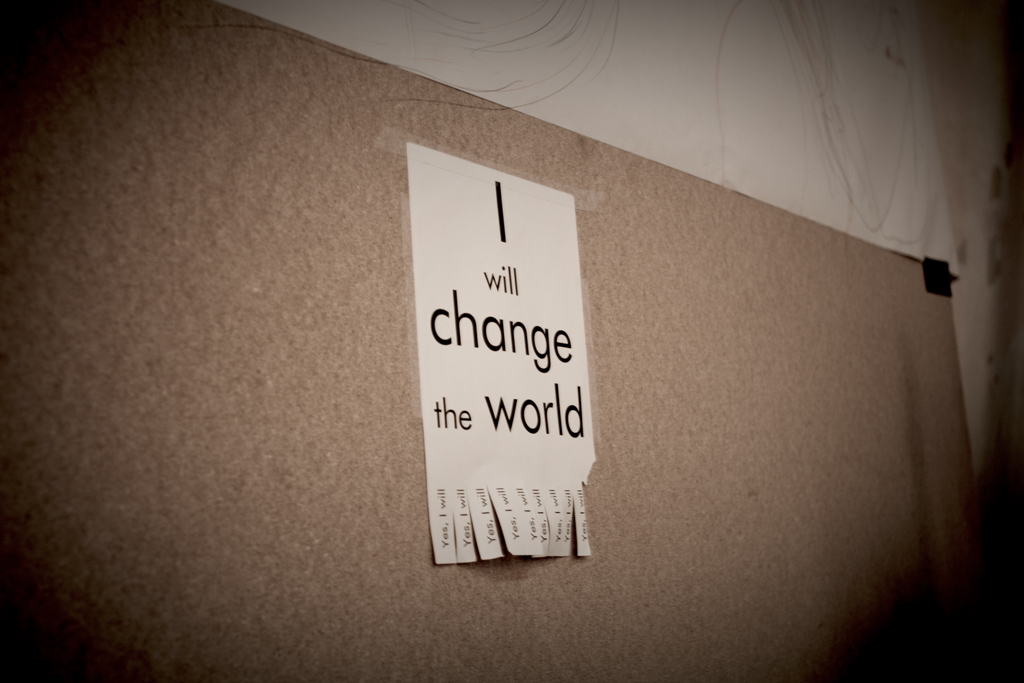
The older, business generation criticizes my generation for a vague, object-less idealism. We want to “change the world”, but we have no idea what we would like to change it into. We want to “make a difference” — we are relatively inarticulate on the difference we would like to make. The criticism fits: we are hankering for some target to aim our rainbow-rays of impact-making sentiment. But the effort to locate the source of this problem in Disney movies and bad parenting misses the point. Wanting to change the world is a fundamentally religious sentiment. My generation’s idealism is not suffering a lack of practical goals, but a lack of practical Christianity. We do not need the advice of a CEO troubled by Millennial apathy in the workplace; we need the priest.
The philosopher Max Scheler argued that one cannot help but perform religious acts, a claim not proven, but certainly helped by the fact that there has never been evidence of a historically irreligious culture. For instance, Scheler describes the act of worship as the act that places some value as the highest value, to which all others must be subordinated. Even the most hardened of atheists and the most cowardly of Christians will have a highest value. The only question is what this value will be — life, erotic love, comfort, money, the State, the tribe, the family, etc. The fascists knew this well, and worked diligently to make the State (or “blood and soil”) the object of worship. My generation tends to make ourselves into our own highest value. The Middle Ages made God their priority. But all men, of all generations, worship, by the simple fact of being men who value things.

This perceptive act, by which one concludes that there is a fly in the ointment, something “broken” or “off” about existence, is insufficient to explain our desire to “change the world.” The Stoics thought that existence was a tragedy, but they would be much more interested in a man accepting his fate than “making a difference.” The Buddhist knows that the world is suffering, but the movement of Buddhist instruction is not to “go out there and change the world” but to “go within and change yourself.”
It is Judaism and, in a particularly sharp way, Christianity, that inaugurates the idea the genuine possibility of saving the world. They do this by declaring that all is not lost — a Messiah is coming who will fix the broken world. The “sacred time” will be restored. The Christian feels this like a knife because Christianity declares that this world-changer has come — God Himself. Even more incredibly, He urges us to take part in his world-changing action. We are to make the broken world into the “Kingdom of Heaven.”
Millennials who vaguely want to “change the world” should appreciate that they are experiencing a uniquely post-Christian feeling. The fact that they cannot articulate what, exactly, they want to change the world into is because they have a Christian-act without any Christian-object, sentiment without belief, religious feeling without religion. It’s not that the “business leaders” who criticize Millennials don’t make this same, religious act; they do, but they phrase it all as a matter of money. They describe the Fallen world as an economic problem redeemed by economic solutions. Millennials are too spiritual to pin the source of salvation on “smart capitalism,” “economic innovation” and “leadership” and too materialistic to pin it on the Christ, and so we pin it nowhere in particular.
Jack Kerouac called his generation the Beatific or “Beat” Generation, because he believed they would see God. My generation is the Lapsarian generation, because, while we have given up on seeing God, we cannot help but see the Fall. We believe that the world is broken — we no longer believe in the rebellion, in the movement that makes it whole. This makes us look like idiots to an older generation. They demand that we clarify what, precisely, is wrong, and what, precisely the world ought to be changed into, and we can only say “everything is wrong” and “something must be done”. We are shoved forward by the powerful push of 2000 year tradition that demands, at every moment, that the world be radically transformed into the Kingdom of Heaven.











